InnovAgroWoMed – Interview: “If you like to learn & challenge yourself, you will really enjoy entrepreneurship!”
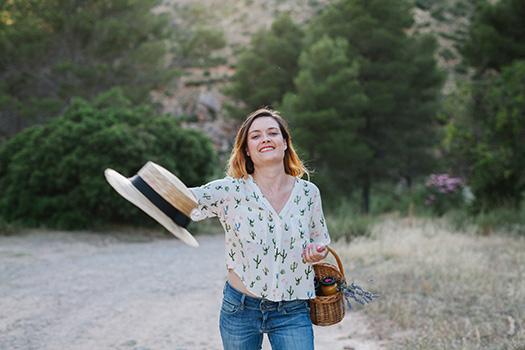
Clementina Domingo, 35, is a social entrepreneur. Vitalist and committed, with her initiative "Sa Mel", she wants to "shake up consciences" and make people's lives sweeter". Her family of beekeepers is behind everything she is experiencing. She has been trained in social education and psycho-pedagogy. Recently, she joined the teaching staff of "Semillas", the training course of the InnovAgroWoMed project in Spain. One of her challenges as a rural entrepreneur is "to feminize the countryside".
Interviewed by Josefina Aranda, Communication Team Member of the InnovAgroWoMed project-Spain for the JOVESOLIDES and ENI CBC Med websites
Who is Clementina Domingo?
"A word that defines me: rural. My whole life is linked to this small rural town in the Region of La Serranía de Valencia. I am a lover of landscapes and nature. I love exploring, traveling, experimenting, and living life. I like to be surrounded by my family and friends. Socializing is very important to me, and I love to talk. A good conversation about life and emotions. I like to say that I belong to the club of intense people, which I created for myself.
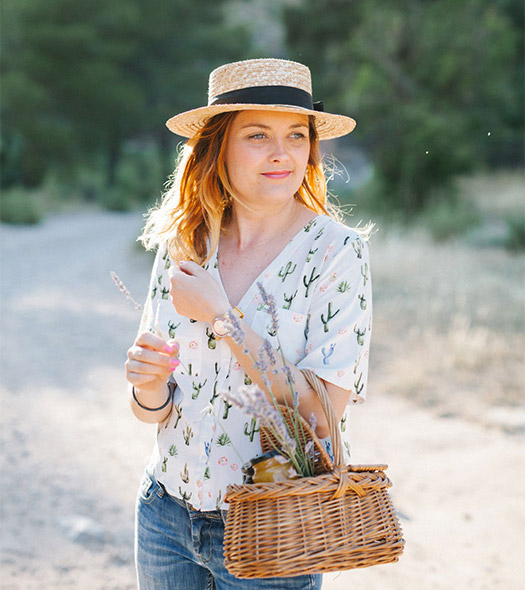
The feeling of being rooted and belonging to the territory defines me quite well and that's why I dedicate myself to defending what belongs to us. What surrounds us, what feeds us, what gives us life".
How do you develop a family business focused on honey?
"For me, heritage and family are important pillars, and my parents started the family beekeeping project with a lot of passion and enthusiasm. And having lived it so closely since I was a teenager, I have made it my own. I am the daughter of beekeepers, that is how I like to define it, and they have not been 'normal' beekeepers, they are the ones who fight and defend our rights, the ones who actively move and tell the four winds. The birth of Miel Sa Mel, who was born the same time my first child was born, was the creative idea that came out of me while I was breastfeeding that baby. That creative force gave the impetus to create this venture. In defending our traditional trade in the livestock sector, I became aware of the injustices that small producers, in this case beekeepers, have to face on a daily basis, including unfair price competition.
That is why Miel Sa Mel was created to protect the last link in the chain, which is the sale of our crops. But it is not only a brand that sells products, I am moved by the values of respect, the territory, the environment, sovereignty, and rurality…
I dedicate all my efforts to disseminate, tell and inform so that people interested in consuming honey know the reality of this trade, the product they consume, what it brings them and the quality and effort behind this trade to achieve excellence. And to compete with the legal but unfair import of honeys from outside our country, which is destroying local and sustainable beekeeping by small beekeepers".
Would you like to tell us more about Miel Sa Mel?
"Sa Mel is a cheerful, fun and natural enterprise, which shows the day-to-day life in a family business dedicated to the sale of home-grown honey. The fundamental principle is consumer education, because it is necessary to change consumer habits and beliefs, so that together, producers and consumers, we can achieve the necessary balance for a quality of life. I offer with Sa Mel monofloral honeys obtained with a lot of effort and respect for nature and for the animal we take care of. And consumers find honey that is guaranteed, exceptional, unmodified, and strategic for biodiversity and ecology. What's more, you receive it without intermediaries, at your doorstep, and the aim is to give you a thousand ideas on how to put that honey on your lips: Values are transmitted through the Sa Mel brand, such as the visibility of rural environments, female entrepreneurship, respect for the wisdom of primary trades, the role of rural women... recipes, in everyday life, in your health care, with your family, on holiday..."
What do you mean by "slow-flow" in the name of your honey brand "Sa Mel Slow & Flow" ?
"This term was born creatively to identify the values of Miel Sa Mel. Slow is the human, artisanal, natural, responsible, and sustainable way of working. Flow is the character that personalizes us. We are cheerful and fun people, the brand colors reflect this, the tone with which we communicate with people and potential customers".
You have published a book entitled « ¡Apicultura! una especie en peligro de extinción» ("Beekeeping: an endangered species"). What was your main objective in publishing it?
"The purpose is to defend the beekeeping sector, you could say it is an activist book. It is an informative and educational book for the whole family, but it is critical and very personal. It is based on my personal experience as the daughter of beekeepers and as a brand leader. I wanted to tell, to put in front of the eyes of more people that the beekeeping sector and the primary sector of the agricultural and livestock trades, in general, is going through difficult and critical times, and I have demonstrated this reality with words and objective data. I seek to shake the consciences of civil society in terms of ecology, environmental sustainability, and respect for life, which is fundamental for health and wellbeing, demonstrating that there are obvious major causes that destroy this quality of life.
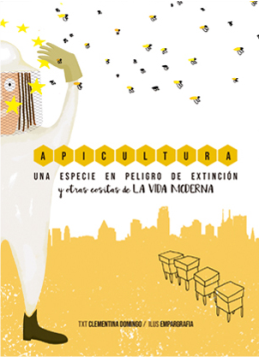
Within the book there is a lot of pedagogy about bees and beekeeping, as they are a strategic livestock in the conservation of the health of the planet in which we all coexist. In short, it is a very practical material, which promotes its use. You can learn, you can draw with its illustrations, you can do activities with your family. Therefore, it reaches a very wide audience and is designed as pedagogical material for teachers and educators".
What have been the main obstacles or difficulties in developing your venture?
"Financing is a key aspect at the beginning. In my case, I had family support to obtain the raw material that gave shape to my project: the honey that my father gave me without payment. I obtained the rest of the materials through my own funds and those of my partner.
The journey is slower, but it is very rewarding. I have never had to deal with financial institutions and debts, only the one contracted with the honey deposit.
On the other hand, learning from everything. Learning how to manage and administer the business. Accounting, invoicing, customer service, marketing, sales...
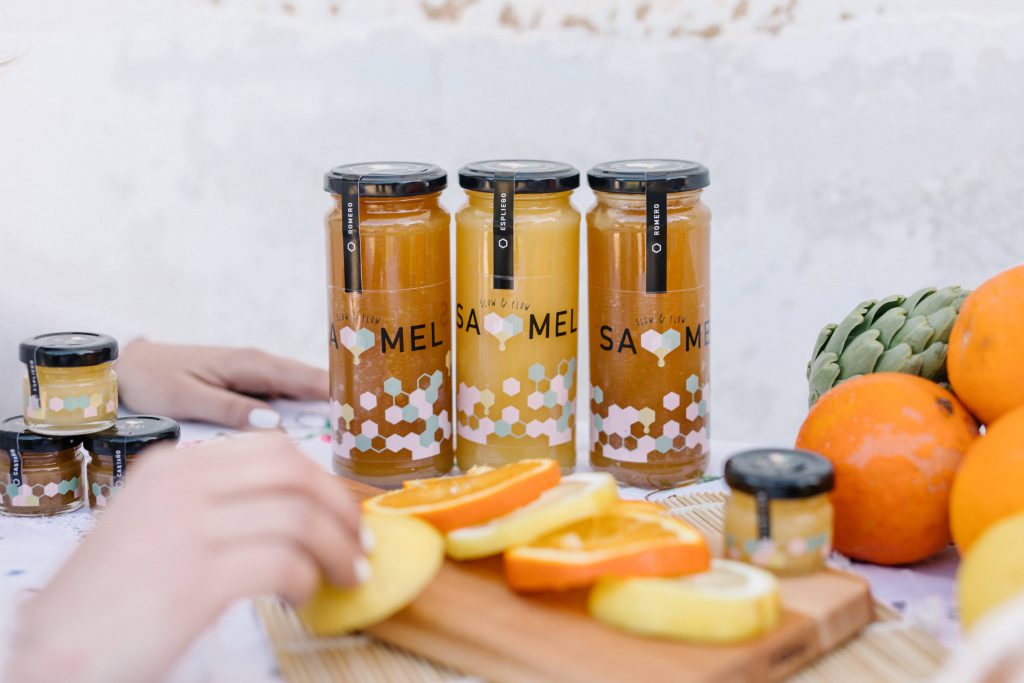
Another real difficulty I have experienced during my entrepreneurship has been learning to manage my time as a self-employed entrepreneur and family life with two young children. This part has been both good and bad, as is the duality of life. I have had time for my family and at the same time, I have been very frustrated at not knowing how to fit these pieces into the puzzle. Spending little time on the project was frustrating, but the end was positive: taking care of my children. It's a state in a loop, coupled with continuous learning, insufficient income, which keeps you on your toes and on a roller coaster, but it's fun. If you like to learn every day and challenge yourself in the short, medium, and long term, you will really enjoy entrepreneurship".
Do you think that in the 21st century, women still face difficulties that men do not?
"The primary sector is still more guarded by men than by women, in terms of bureaucracy and legal representation. But this is not the daily reality of the countryside, and what makes the beauty of entrepreneurship in the agricultural and livestock sector is that we can promote change, because we are at the edge of many changes: to get visibility, representative positions in assemblies, cooperatives, unions, to be in charge of farms and agribusinesses, to bring our added value as women in the field of business management, and it is also a beautiful encouragement, that of feminizing the countryside".
Tell us about your role in '’Semillas'’…
"I consider that I have provided valuable content for the women who make up the group of students, both because of my expert knowledge in the sector, and because of my experience as a social entrepreneur and triple impact entrepreneur. But also, the most beautiful thing I feel when I stand in front of them in my classes is being able to transmit the same values I wrote above: the feminization of the field in all senses and being able to be part of a change in the socio-economic paradigm that is imminent and that we need on a social and economic level.
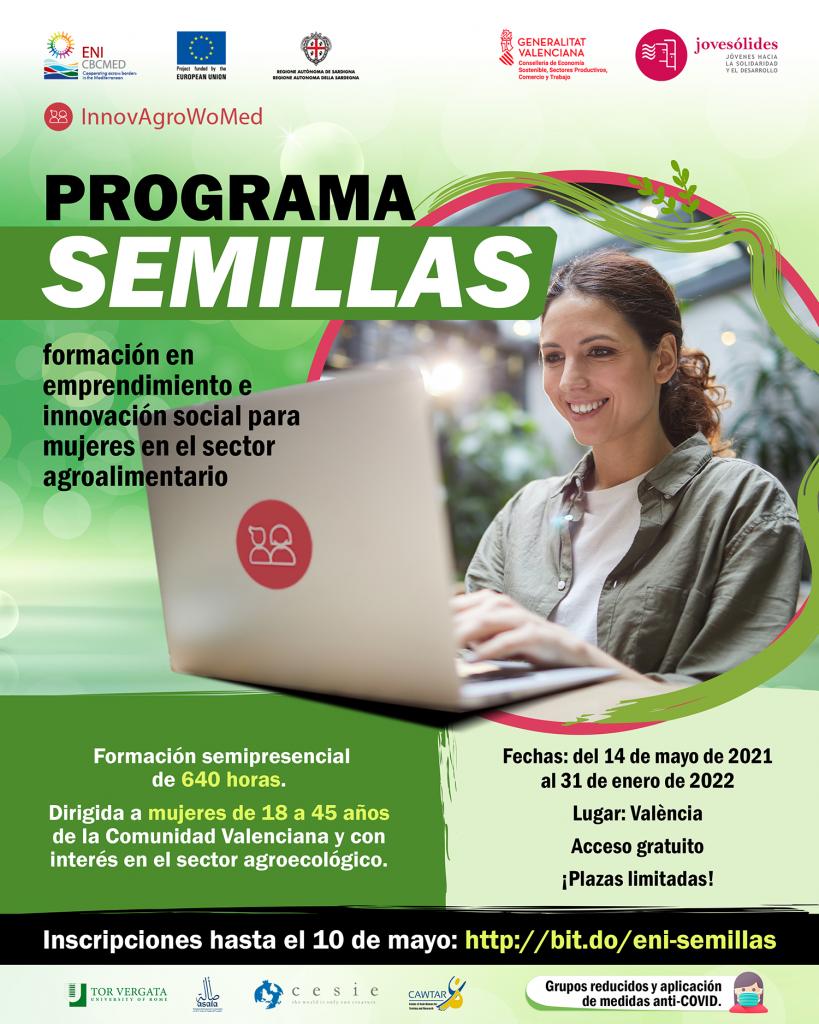
I have had the opportunity to transmit that there are sufficient reasons to undertake or work in this sector, as the rewards are much greater than the economic profitability. But it was even better to receive from the students a special sensitivity towards the idea of being part of the change. Entrepreneurship in the agri-food sector is not just a business, it is a vocation, it is wanting to be part of caring for the Earth and its stewardship, and it is dignifying a sector that does not have a good reputation. Little by little, with people with new values, intelligence and training amply demonstrated, the collective imagination of these traditional crafts, artisans and the agri-food sector will change globally".
What are your projections for the future?
"To continue creating seeds in my literary path, both in dissemination and activism for the defense of rural life, the environment and our trade, and to get our jars of honey in Sa Mel into the mouths of all people. I also wish to contribute to the defense of bees as a fundamental animal in the survival of humanity. To contribute to the defense of food sovereignty, to make the role of rural women visible, to promote life in the villages for all those who want to live there. To this end, I have written my first book, and I will continue writing, and I have also launched my own podcast with another rural colleague from the north of Spain (Territorio rural podcast) and I am planning to make the leap to radio in Valencia".
A través de este enlace puede acceder a la versión en español de esta entrevista







